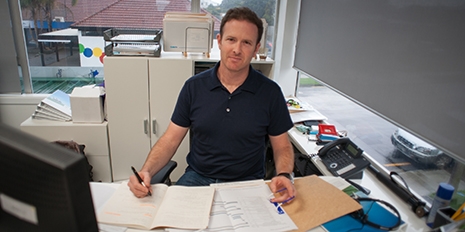
Original article by Joseph Aldridge, courtesy Bay of Plenty Times Weekend. Photo by Robin Lyttle.
Additional research and development funding announced in this week’s Budget is welcome news for Bay of Plenty innovators and research professionals.
The Government announced on Thursday that it will invest close to $130 million into Callaghan innovation to support start-up businesses and encourage more research and development amongst New Zealand businesses.
Callaghan’s grants schemes will be simplified and repackaged into three types of grants: growth grants for companies with bus research and development programmes; project grants for companies with smaller programmes; grants for students to work with companies on research projects.
Announcing the changes on Thursday, Science and Innovation Minister Steven Joyce said business innovation was crucial for New Zealand companies to compete and win in the tough international environment.
“This package will help our business invest more in research and development so they can compete more effectively in international markets.
“Our most successful exporters are generally the most innovative,” he said.
Timothy Allan, managing director of Mount Maunganui-based Locus Research, said the restructuring of Callaghan’s grants simplified the process of applying for funding and was good for businesses.
Another positive announced in the Budget was the tax break proposed for small businesses which incur losses due to their research and development spending, Allan said.
When announcing the proposal, Revenue Minister Peter Dunn said small businesses that invested in research and development were doing the right thing.
“However, that expenditure can be crippling for small ventures, given their capital constraints,” he said.
“With this proposal, we are effectively recognising that and looking to make sure these small companies are not disadvantaged.”
Allan said the period when start-up businesses were spending on developing their product but not yet generating any income was a financially painful time.
The proposed tax break “removed barriers to investment which is the key and it recognises companies that are in a R&D intensive phase that are generating intellectual property and could generate employment and foreign exchange for New Zealand, so it’s got to be good,” he said.
KPMG tax director Robert Hill said although the full details of the tax break were not yet known, the announcement would likely provide some encouragement to small businesses.
Key questions yet to be answered were what defines a small business, and can a small business partner with a larger business and still receive the tax refund, he said.
Hill also wondered what level of compliance the Inland Revenue Department (IRD) will require from businesses which claim the refund, and whether there will be any requirement to pay it back.
“If you get a refund now when the company is in losses, is it going to have to be paid back to the IRD when the company turns to profit?
“I would expect not, but until we know that detail it’s hard to assess the overall impact.”